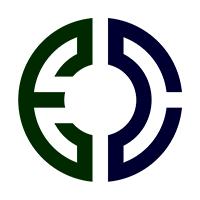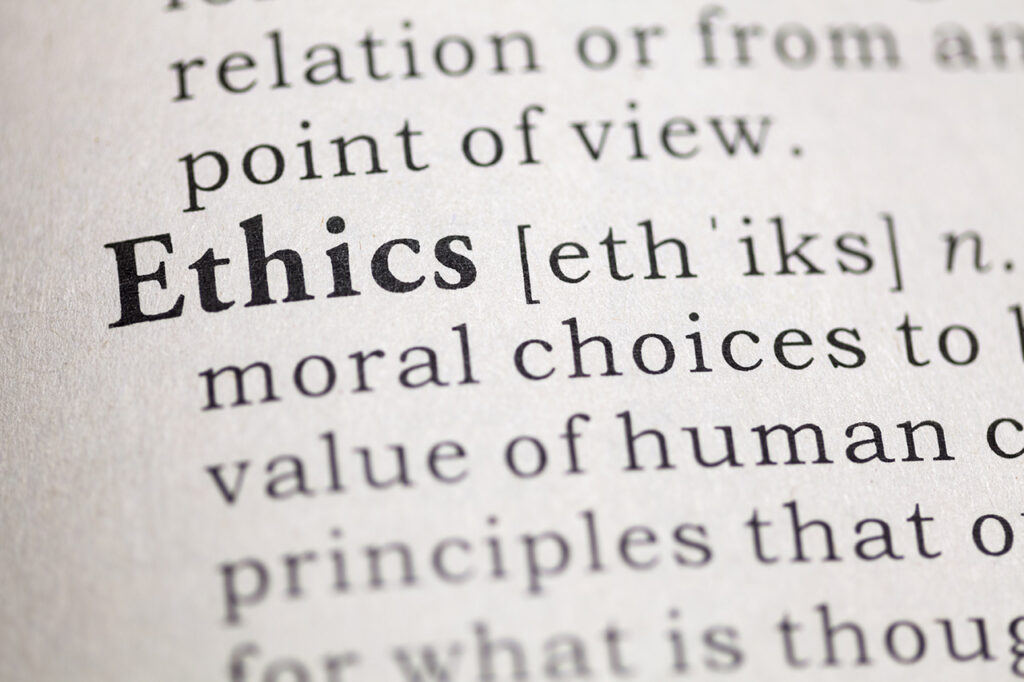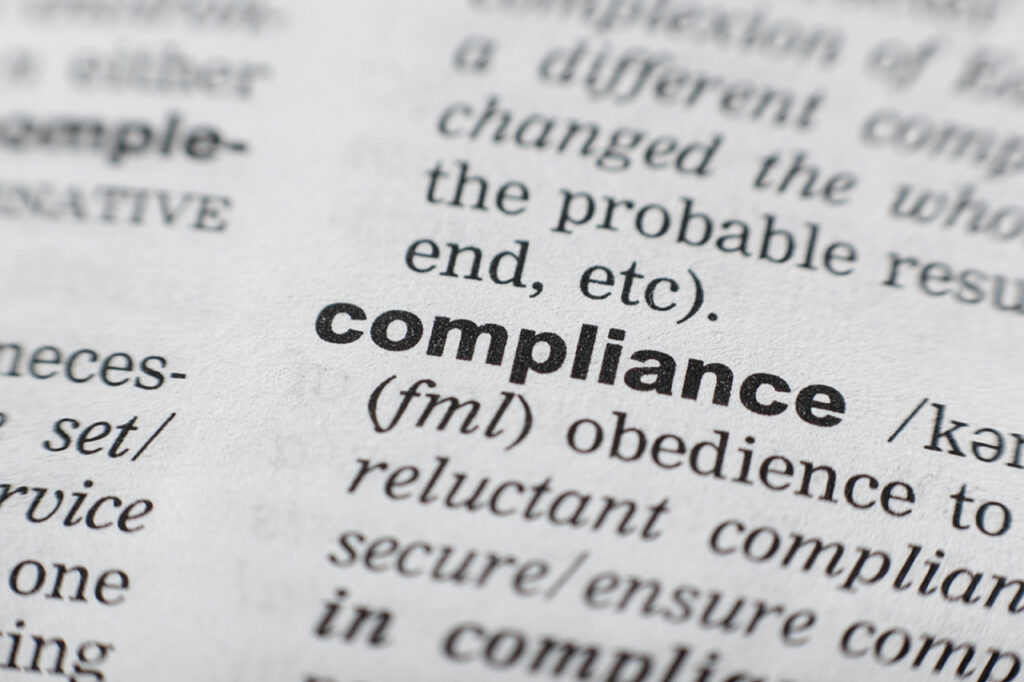ETHICS & COMPLIANCE

“Ethics” and “Compliance” are separate concepts embodying different meanings although they generally go hand in hand.
To protect the interest of their companies, people, partners and assets, businesses are advised to promote both an ethical and a compliant culture internally.
The complementarity nature of Ethics & Compliance is reflected in our firm’s logo: by facing each other, the E & C work jointly to help businesses navigate the maze of their legal and regulatory obligations to protect their legal and economic interests.

Ethics is the set of moral and personal principles and standards of conduct that guide decisions, choices, and actions reflecting and enacting our values.
Ethics includes judgment and making choices about right and wrong or good and bad.
Applied to businesses, ethics is the opportunity to lead by example through the discipline of doing what is right. It may mean going beyond the requirements of the law, doing what is right regardless of the letter of the law.

Compliance means following laws, regulations, rules or policies to the letter of the law, which adherence is mandatory and defined by governmental or prudential expectations.
Applied to businesses, compliance includes identifying, managing and minimizing risks of violations and non-compliance within business activities. Compliance therefore includes preventing misconduct, not simply following laws.
OUR SERVICES
RISK ASSESSMENTS, REMEDIATION PLANS AND ROADMAPS
How to assess and remedy the ethics and compliance risks your business is facing?
The risk and compliance assessments we conduct include a three-phased approach:
- risk identification: identifying and assessing risks relevant to the business, and its exposure to such risks
- gap analysis: assessing the maturity compliance framework implemented internally, including identifying legal and operational gaps and weaknesses
- remediation plan: recommending actions to implement, strengthen or formalize an efficient risk-based compliance framework on designated topics, taking into consideration both market practices and best practices.
COMPLIANCE ORGANIZATION
How to adequately structure your compliance governance and organization across the business?
This includes but is not limited to assisting businesses in:
- choosing the adequate structure between a centralized, decentralized or hybrid compliance organization model
- setting up the tone at the top and promoting a sound compliance culture across the business
- setting up appropriate lines of controls at operational, compliance and (internal) audit levels
- implementing adequate functions and appointing the right persons and services
- assessing the pros and cons of outsourcing relevant functions
GOVERNANCE AND LEADERSHIP
How to set up the tone at the top and take leadership on ethics & compliance?
Ethics & Compliance helps leaders implement sound governance, risk management and solid ethical and compliance foundations at the highest level of the business structure. We help set the tone at the top to allow the management to foster a strong ethics & compliance culture thereby accelerating the implementation of its values and principles across the organization.
This includes but is not limited to assisting businesses with:
- engaging with leadership to help them fully understand the benefits of a strong ethics & compliance culture from an economic and reputational perspectives
- giving tailor-made talks and trainings to management on those topics and issues to foster long-term awareness, commitment and empowerment
- understanding the business DNA and culture and delivering flexible, customized advice adapted to its needs and expectations
- ensuring that the governance and ethics & compliance missions permeate the business and are embedded in its corporate culture
- standing by management in crisis situations and helping them decide the best course of action and minimizing potential adverse consequences for the business and its reputation
TRANSVERSAL ETHICS AND COMPLIANCE TOPICS
How to design a self-promoting code of conduct that showcases your values and uniqueness?
The code of conduct symbolizes the cornerstone of a business’s legal, ethics and compliance foundations. It is an essential piece to define “who we are”. The code of conduct allows the business to represent its core values and its commitments to protecting its people, the environment and its assets and, more generally, to complying with the law.This includes but is not limited to addressing:
- the social rights of your people and their protection against any forms of discrimination, harassment or any other adverse actions
- your commitment as a business to achieving sustainability
- your commitment to compliance and ethical conduct to ensure honest, fair and transparent business activity and competition
- preventing fraud, maintaining accurate records and ensuring privacy and data protection, including intellectual property and confidential information
Although originally directed to the personnel, it is becoming market practice for businesses to make their code of conduct available to the public. This to showcase and attest of their ethical and compliant values and conduct.
At Ethics & Compliance, we therefore help businesses design a tailor-made code of conduct reflecting their DNA and uniqueness.
How to prevent, identify and adequately manage conflicts of interest affecting your business?
Conflicts of interest are often difficult to spot and to address within a business organization. They include but are not limited to situations where the conflicted person:- has a financial, social or other type of incentive to favor a personal interest over the interest of their company
- carries on the same business as the company or a business partner
- has a close relationship with a business partner or a prospective recruit
If not addressed properly, conflicts of interest may have a negative effect on transparency, integrity and good faith requirements, therefore on relationships with business partners.
At Ethics & Compliance, we assist businesses in establishing policies, procedures and controls to help their personnel:
- understand the nature, extent and variety of types of conflicts of interest
- identify and report potential conflicts of interest
- implement effective controls and measures to prevent, detect, manage and resolve conflicts of interest
- protect the interests of the business, its personnel and shareholders against such conflicts
How to embark the ESG compliance journey and assess your sustainability achievements and rating?
Environmental, social, and governance (ESG) are the three key factors when measuring the sustainability and ethical impact of a business. Most socially responsible investors screen businesses using ESG criteria when considering investments.
Environmental criteria assess how a business safeguards the environment, such as corporate policies addressing climate change.
Social criteria examine how the business manages relationships with personnel, suppliers, customers, and the communities where it operates.
Governance deals with the business’s leadership, executive pay, audits, internal controls, and shareholder rights.
ESG is becoming of paramount importance for all businesses today, an evolution further reinforced by the recent adoption by the EU of the Corporate Sustainability Reporting Directive (CSRD), which will subject all size companies to reporting requirements.
At Ethics & Compliance, we therefore assist companies in designing and implementing an appropriate ESG framework, then in understanding and assessing their sustainability achievements and rating.
This includes advising businesses on the most suitable ESG global initiatives to join and global principles and guidelines to follow.
